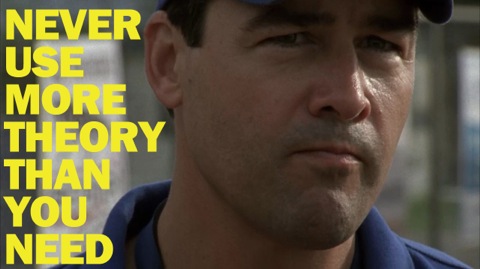Extra Credit Opportunity
Professor Lisa Woolfork--Department of English
Professor Gertrude Fraser--Vice Provost for Faulty Recruitment and Retention
Professor Victor Cabas--Department of Rhetoric, Hampden-Sydney College
Professor Sabrina Pendergrass--Department of Sociology/ African American and African Studies
Kwame Holmes--Carter G. Woodson Institute, Post-Doctoral Fellow
Jason Saunders--Department of English Doctoral Student
Tuesday, September 18, 2012
4:30pm
125 Minor Hall
Light refreshments to follow in Minor Hall Lobby
Academic Coach Taylor says...
Apparently this has been running around the internets, but I had never heard of it before this morning…

Extra Credit Opportunity
The Myth of Ownership: An Anthropologist Looks at the Corporate Share
Ira Bashkow
Associate Professor of Anthropology
University of Virginia
August 31, 2012
Brooks Hall 2nd Floor Conference Room
1:00 P.M.-3:00 P.M.
Reception to follow in Brooks Hall Commons
Given the scale of attention paid to the stock market and the importance of stock investment in the economy, it is surprising how much mystification attaches to the question of what corporate stock is. The predominant view is that companies are owned collectively by the owners of the shares of their stock, and this principle forms the foundation of norms of corporate purpose that are widely taken for granted. But there is in fact no strong legal case for this view, and the evidence from the economicstructure of corporations is drawn solely from early stage firms and is contradicted in the case of the later stage public companies whose shares are traded on the main stock exchanges.
In this talk I explain the significance of our society's "mythic" construction of corporate share ownership. Its academic support comes from finance economics and reflects flawed, individualistic presuppositions regarding property ownership and the nature of corporate entities. An anthropological perspective, attuned to the specifics of social form and the historicity and reality of social formations, is needed to demystify the nature of corporate equity as a form of property, and to reveal the essentially political construction of its role in contemporary capitalism.
The Umbrella Man
My point was that humans appear to be theorizing machines - we make theories even when we don’t think we are. (Keep in mind that only some of these get the legitimacy designated by the social label “theory.”) For the first half of the video I, at least, was completely convinced that the Umbrella Man had to be the real assassin.
The comments on the YouTube page -- wonky spelling aside -- offer us even more food for thought about what counts as an idea, a theory, or a conspiracy theory.
What Kind of Brain is the Web Giving Us?

[…]
What kind of brain is the Web giving us? That question will no doubt be the subject of a great deal of research in the years ahead. Already, though, there is much we know or can surmise—and the news is quite disturbing. Dozens of studies by psychologists, neurobiologists, and educators point to the same conclusion: When we go online, we enter an environment that promotes cursory reading, hurried and distracted thinking, and superficial learning. Even as the Internet grants us easy access to vast amounts of information, it is turning us into shallower thinkers, literally changing the structure of our brain.
[…]
From Wired, with more here.
This is Your Brain on Screens

Despite my own use of technology in and out of the classroom, I have a strong restriction against students using laptops in class. At the beginning of the semester, I want to explain my reasoning behind this policy.
I believe that it is incredibly hard not to multi-task when you are sitting in front of a screen, be it a TV or computer screen. And, although multi-tasking might feel good to some people at some moments, every piece of evidence I have ever read or experienced convinces me of the opposite. Multi-tasking hinders listening, thinking, engagement, and learning, all of which I’m trying to maximize in the classroom.
For more on this topic, check out the New York Times’ recent series about the dangers of texting while driving and the benefits of unplugging from technology.